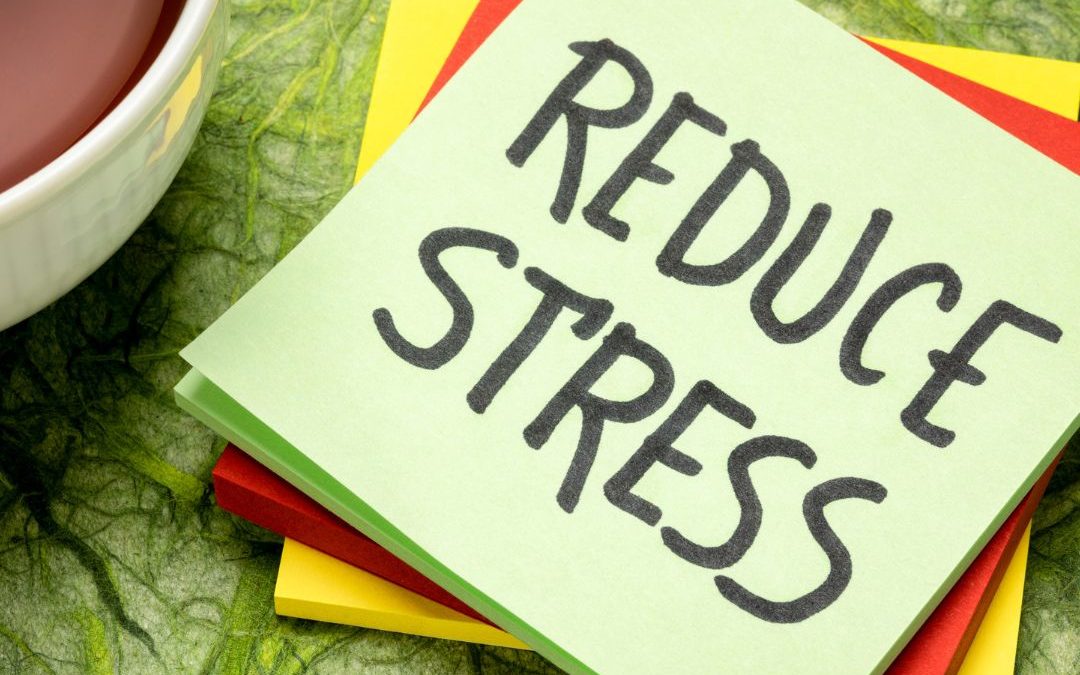
Reduce Stress written on a sticky note pad
We all experience stress in our lives. No one is immune from it. Stress comes in various formats. It could be work-related, relationship-focused, or health-specific. Some degree of stress is beneficial especially when it comes to helping you push through completing an assignment, sitting for an exam, meeting a deadline, or speaking in public.
Suggested video: Kelly McGonigal’s TED talk, How to Make Stress Your Friend (14:16 minutes)
Our stress response is an ancient one that is designed to help us survive but when we deal with chronic levels of stress or hold old stress, trauma, and loss in our body, it wreaks havoc with our HPA Axis. Now I know I’ve just referenced a neuroscience term, so I’m going to stop here and suggest that you view a 2-minute video on understanding the HPA Axis (Hypothalamo-Pituitary-Adrenocortical), which is necessary for stress adaptation.
Suggested 2-minute video: https://youtu.be/QAeBKRaNri0
Stress Accumulates in the Body
Prolonged or chronic stress is not healthy. According to Dr. Eric Berg and other medical professionals, stress accumulates in the body. If stress is not released effectively, our body’s capacity to contain it simply overflows and our sympathetic nervous system remains continuously turned on which translates into a constant feeling of being in the “fight or flight” response. When we’re in this heightened state of alert, our parasympathetic nervous system’s ability to create rest, relaxation, and proper digestion becomes quite diminished.
The Adrenal Glands
Let’s take a closer look at what is going on inside our body. We have two adrenal glands and they are what is commonly known as our stress glands. One sits on top of each kidney. There are two primary parts to an adrenal gland. There is the inner part which is called the adrenal medulla, and the adrenal cortex which is the outer part.
Cortisol is a hormone made from the outer part of the adrenal gland tissue. The inside of the cortisol gland creates adrenaline.
Do You Have Adrenal Fatigue?
If you can’t seem to turn off cortisol, it is because the adrenal gland doesn’t have an off switch. The more stress events you have in your life, the more your adrenal glands will produce cortisol and adrenaline. Cortisol reacts to stress and adapts the body to stress states. If you have past trauma or losses in your life that have been unresolved, you may have accumulated a great deal of built-up stress.
If even the slightest amount of stress affects your body, you might be stuck in fight or flight response mode. You will need to intentionally work on ways to manually dial down your cortisol levels.
To do this, let’s first look at the signs of adrenal fatigue. According to Dr. Berg, the signs include being serious and solid or rigid rather than light and insouciant.
Other signs of adrenal fatigue include:
- Having insomnia or waking between 2 and 2:30 a.m. and feeling wide awake
- Excessive thinking or overthinking and frequently trying to problem-solve.
- Experiencing brain fog, forgetfulness, or a lack of concentration
- Over-reacting to stress situations
- Low tolerance especially for mistakes or people you think are incompetent
- Experiencing breathing issues (shortness of breath, can’t seem to catch your breath)
- Having sinus issues or allergies
- Experiencing an achiness in the body (inflammatory issues) or if you feel a lot of muscle aches not attributed to a recent cardo workout or weight training
- Feeling dizzy when you stand
- Feeling out of breath or having the sensation of heaviness in your legs when you walk up a flight of stairs.
- Cravings for carbs and salt
- Holding onto belly fat
- Blood sugar problems
Ways to Chill Out Your Adrenal Glands or HPA Axis Dysfunction
The natural way to reduce cortisol is through diet and lifestyle. There is a helpful article by The Health Formula that offers many practical suggestions that you can do to positively impact HPA Axis dysfunction (HPA-D).
If you’re looking for a few things you can do to start dialing down your cortisol levels, four top suggestions are:
- Go for a long walk outside. This allows you to distract your thoughts by being in nature. Regular walking (moderate activity level for 150 minutes per week) has the side benefit of helping the brain create new neurons called adult neurogenesis that support memory and learning (Lark, n.d.).
- Practice Deep Breathing. When you breathe deeply, you send a message to your brain to calm down and relax. The brain then sends this message to your body. Check out these tips for doing breathing exercise.
- Reconnect with pleasure, play, and people. If you’re suffering from adrenal fatigue, you may feel a flat mood or dispirited. Consider a hobby that you have been putting off or that you’d like to restart. Text a friend, and better yet, invite them to go for a walk with you in nature.
Check in with a Health Care Practitioner
If you’re not sure if you’re suffering from adrenal fatigue, please consider contacting a health care practitioner such as your attending physician or a mental health specialist. There are simple procedures that can be conducted (e.g., hair or saliva sample, Ragland’s test) to gain insights into what you are experiencing and to begin the process of designing a recommended plan to support your mental and physical well-being.
Disclaimer
Please note that this post is a general overview and not mental advice.
The articles, suggested readings, and additional resources on this website provide general information only and do not constitute advice in any way. My goal is to provide information that is well-researched, thoughtful, and relevant, but it is a guide only. What is best for you will depend on your personal history and circumstances. If you require additional support, information, or guidance in relation to a particular issue, please speak with a medical practitioner or therapist who will be able to take the time to understand your individual circumstances, history, worldview, and goals and apply this holistic information to support you in the most effective course of action. Everyone deserves to feel well.
Resources



